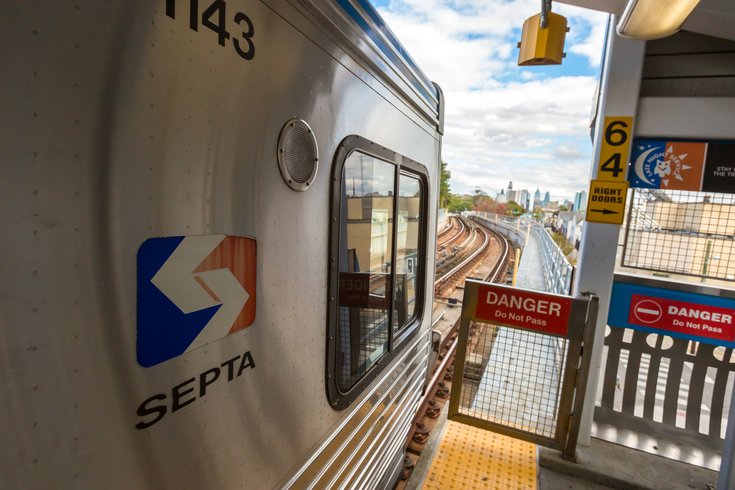
July 12, 2024
 Thom Carroll/for PhillyVoice
Thom Carroll/for PhillyVoice
SEPTA will receive $51 million in additional funding as part of the new Pennsylvania budget. The one-time infusion is a temporary fix intended to carry the transit system to the fall when legislators are expected to work on a permanent solution.
Pennsylvania passed a $47.6 billion budget Thursday night, but it only included a stopgap solution to fund the state's financially strapped public transportation systems, like SEPTA.
The budget allots $80.5 million extra for public transit, Gov. Josh Shapiro's office said in a statement after the budget the budget was signed. About $51 million of that money will go to SEPTA, the transportation authority's spokesperson Andrew Busch said Friday. The one-time payment will help SEPTA cover its expenses in the short term.
MORE: Canned cocktails will soon be sold in Pennsylvania grocery stores
SEPTA faces a financial shortfall of $240 million, which the authority has warned could lead to service cuts and increased fares.
"We will continue working with the governor, state lawmakers and other stakeholders in the fall to secure a long-term funding solution to address SEPTA's sturctural budget deficit." a statement from SEPTA, emailed by Busch, reads. "SEPTA will also explore all available options for balancing its operating budget."
Shapiro's proposed budget had included $282.8 million for public transit with a $161 million allotted for SEPTA, specifically. And SEPTA's $2.6 billion budget proposal is dependent on the transit authority receiving that money. The budget plan also earmarks money for trolley modernization plans, new railcars for the Market-Frankford Line and additional cleaners and transit police officers.
While Philadelphia's House delegation celebrated some components of Pennsylvania's budget, like the $231.9 million increase in basic education funding for Philadelphia public schools, the delegation blamed Republicans in the Senate for not supporting a long-term solution for SEPTA, saying that "mass transit was not a priority" to them.
In Harrisburg, Democrats control the House and Republicans control the Senate.
Rep. Morgan Cephas (D-192nd) who chairs the delegation, wrote: "While we were unable to secure the dedicated, recurring funding that the governor proposed for mass transit, we are happy for the one-time infusion of money from the General Fund, which will stave off the most drastic service cuts and fare increases by SEPTA."
Cephas also stated that legislators will "work toward a dedicated funding source to keep SEPTA moving" when they return in the fall, mentioning the urgency of funding public transit for Philadelphia's "major world-class events in 2026," which includes the country's 250th anniversary celebration six matches during the FIFA World Cup and the MLB All-Star Game.
Organizers of the Save the Train coalition, which originally formed to advocate for preserving the Chestnut Hill West Regional Rail line from cuts but has expanded its mission to rally against cuts across all of SEPTA's system, said they were "deeply disappointed" by state's public transportation funding plan.
"We don’t know yet what the impact of this failure means for potential service cuts, and we call on SEPTA to be transparent and honest with its riders about the immediate future of service," the organization said in an emailed statement.
Transit advocacy group Transit for All PA lamented the lack of a sustainable multi-year funding solution for public transit, calling the one-time distribution a "band-aid that will only push the fiscal cliff slightly further down the road."
SEPTA has sought additional revenue through means like selling the name rights to stations, most recently Drexel Station on 30th Street. SEPTA is also testing taller gates to curtail fare evaders, a problems that costs the authority between $30-$40 million annually. Last month, the transit authority also ended its free parking policy at Regional Rail stations.